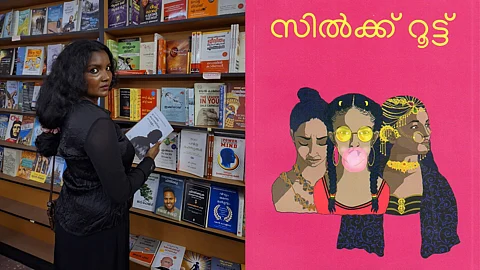
- HOMEGROWN WORLD
- #HGCREATORS
- #HGEXPLORE
- #HGVOICES
- #HGSHOP
- CAREERS
- ABOUT US
- CONTACT US

There’s a moment in every artist’s life where the act of making turns into a mirror. For Kochi-based poet and writer Aleena, that mirror cracked open when she first realised that the personal is, and always has been, political. Before that reckoning, she was writing in borrowed voices. "I mimicked the styles of writers I adored, who were from privileged backgrounds. I had internalised a gaze that looked down upon my own community without even realising it," she recalls.
As a Dailt woman, Aleena reflected on how, growing up, she had little access to writing that came from her own community. It was seldom included in textbooks or seen in publishing spaces and was often dismissed as not being “mainstream” or commercially viable. But over time, she began to notice how closely her own memories aligned with the wider, often overlooked, experiences of her community.
Even when something hadn’t happened to her directly, she had seen it play out in the lives of older women around her. Those stories, she realised, stood in stark contrast to the dominant narratives around womanhood. It became important, urgent even, for her to capture those truths, because if she didn’t, who would?
Her orientation into her own voice and the voice of her community came from stories told by her mother and grandmother while they sat in a circle preparing jackfruit. And with that, her poems stopped being an imitation and became something else entirely: a reclamation.
For the Aleena, storytelling is a reminder of who she is. This is precisely is what she tries to embody in her work. Part of this is also a response to popular culture that has long offered one-dimensional images or fetishized archetypes of Dalit women. In a recent instance, Aleena publicly criticized a celebrated novel longlisted for an international prize, calling out its reduction of a Dalit woman character into a caricature. But the reaction she got was indifference.
That indifference is telling. It reveals how many people are content with a token representation so long as it doesn’t disrupt their comfort. It is applauded only when it’s palatable, not when it challenges the gaze or demands accountability.
Her book silk route pushes back against this homogenised gaze of dalit communities using layered, imaginative storytelling that embraces contradiction and multiplicity. She believes it's important for her to to honour difference within the community, to avoid flattening it from the inside.
And so, in this constant battle against oppression, joy and hope become weapons too. "I saw the resilience of the women around me, their humour, their way of making life go on. That duality of being pushed down and still choosing to stand up is central to my writing. I don’t want my poems to only document what is done to us. I want them to reflect how we are dealing with it as well," she admits.
Aleena's poetry holds space for both hurt and hope. And this is also something she urges allies to keep in mind — to register not just pain, but joy, resilience, and the everyday complexities of their lives. This means means engaging with Dalit writers, artists, and thinkers on their own terms, supporting grassroots efforts, and valuing informal spaces. Understanding must move beyond trauma to embrace love, humour, and creativity. Above all, it calls for humility, a willingness to listen rather than interpret, and a lifelong, sincere commitment to unlearning caste.
